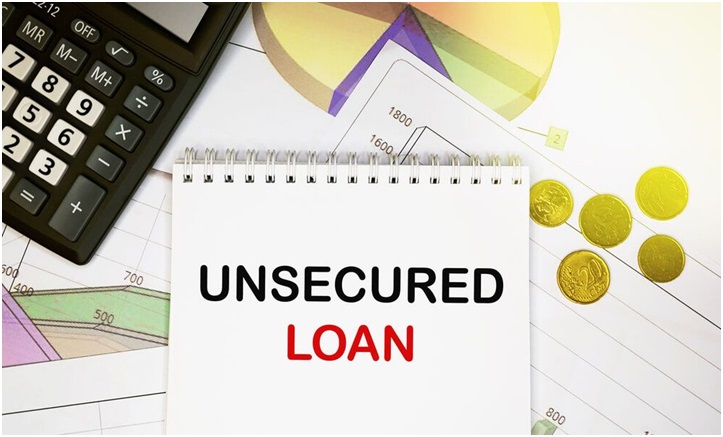Key Things to Consider While Availing Different Types of Unsecured Loan

As per a recent report, the total size of the Indian credit market stood at Rs. 156.9 lakh crore (as of March 2021), reflecting 100% growth from FY17 to FY21.
The lending market comes with different types of unsecured loans (such as personal loans, auto loans, business loans). Growth in this loan segment indicates the fine-tuning between demand and supply. Though these unsecured financing options are readily available, individuals must pay attention to certain factors to maximize benefits.
Key Factors to Consider While Taking Different Types of Unsecured Loans
The unsecured loan application process is quick and convenient as individuals can now borrow money online and utilize funds during urgent requirements. However, since any collateral or security does not back these financing options, borrowers need to keep in mind specific pointers to ensure they get the best deal. These are discussed below:
-
Check interest rate and additional charges
One of the major factors to consider while opting for unsecured loans is interest rates. Borrowers must know that since unsecured financing is not backed by collateral or security, the financial institution charges a high-interest rate to safeguard lent-out money. In such cases, unsecured loan applicants must compare the interest rate offered by various lenders and settle for one that best suits them.
Remember, there is no standard rate of interest in the market. Further, borrowers have to choose between floating and fixed interest rates, where a difference of a few digits or fractions can significantly impact the total cost of borrowing. This is important for all types of unsecured loans, such as car loans. Most car dealers have tie-ups with various lenders. Hence, borrowers can easily collect quotations on interest rates and select the most beneficial deal.
Further, applicants must check additional charges like processing fees, foreclosure, and pre-payment charges. Suppose an applicant has applied for a personal loan and wants to make a pre-payment, reducing the total interest amount; they must be aware that the lenders can impose restrictions and charges for making pre-payments. This is why borrowers must know company policies and be mindful of hidden costs before signing a personal loan agreement.
-
Know your credit score
CIBIL/credit score is a crucial determinant of unsecured loan eligibility. A CIBIL or credit score is a three-digit number that ranges from 300-900, mirroring the creditworthiness of borrowers. It shows the financial stature of an applicant in respect to their disposable income, outstanding obligation, borrowing and repayment pattern, and history. The higher the score, the better the chances of loan approvals.
Please note that loan terms (such as interest rate) and amount depend highly on the CIBIL score. Here, if an applicant with a credit score of 750 or above applies for a personal loan, they have a high chance of instant approval with improved terms than an applicant with a credit score of 630. The same applies to other types of unsecured loans, such as car loans or business loans. If individuals with high credit scores apply for such financing options, they can avail of loans at favorable servicing terms.
For instance, notable NBFCs like Bajaj Finserv provide pre-approved offers to eligible applicants, such as individuals with a credit score of 750 or above, making the loan availing process simple. These offers are also applicable to several financial products, such as personal loans, business loans etc. Individuals can check their pre-approved offers by providing names and contact details.
-
Asses EMI burden
Whether individuals apply for a business loan or personal loan (even if taken to finance a great education abroad), they must evaluate their needs and apply for the required amount. Assessing the needs and ability to repay are keys to managing loans efficiently. Apart from the loan amount, individuals must judiciously decide the loan tenor. Both loan amount and tenor play a significant role in determining the EMI amount. While longer tenor helps individuals to lower EMI burden, shorter tenor increases the same.
The first option seems convenient for individuals who have taken personal loans for education purposes. Students usually apply for an education loan with a co-applicant and start to repay the loan after the stipulated study period and the additional one year ends. Here, if they choose a longer tenor, they can repay without any worry even if they initially do not get a satisfactory job. However, one must note that a longer tenor also leads to a high interest outgo at the end of the tenor, increasing the total cost of borrowing.
To decide an affordable EMI keeping in mind the interest outgo, individuals can use online calculators to calculate personal loan EMIs by entering various tenor options.
Understanding the factors mentioned above and applying those while availing of different types of unsecured loans can help individuals make an informed decision.